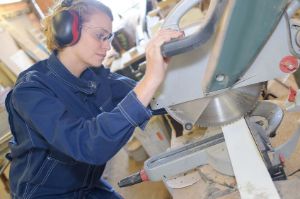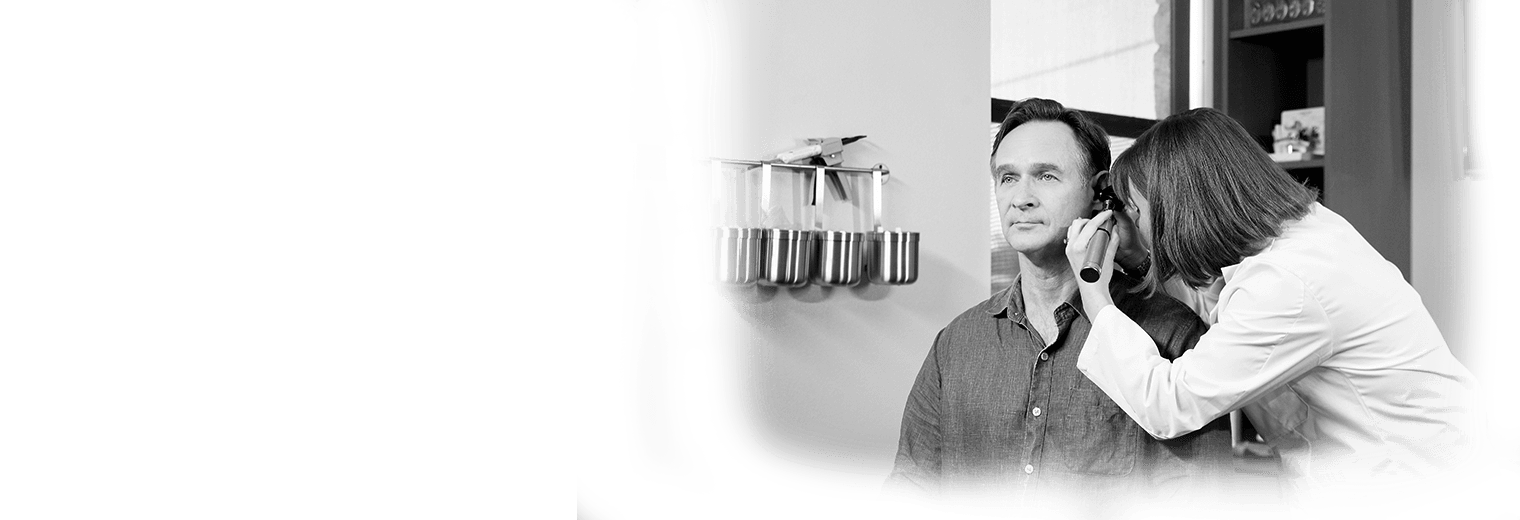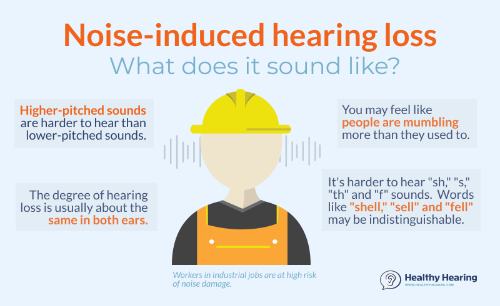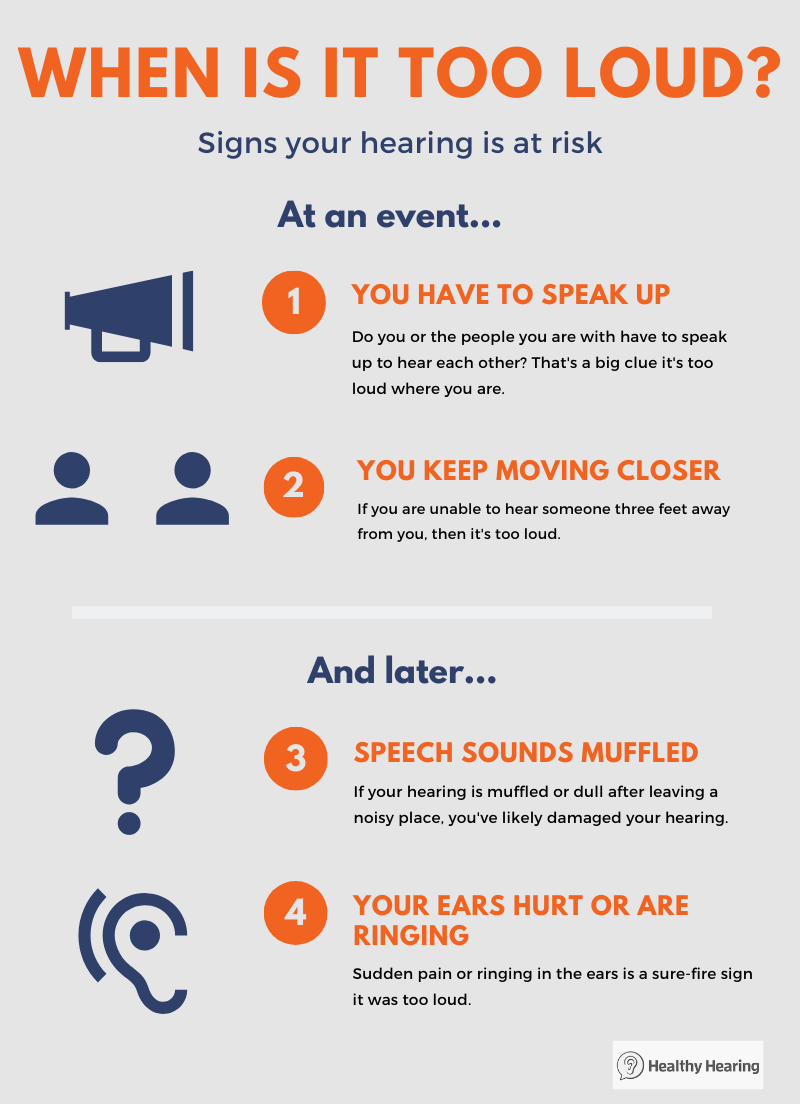|
www.HealthyHearing.com |
Noise-related hearing loss
By Joy Victory, managing editor, Healthy Hearing  Reviewed by
Megan Gerhart, audiologist Reviewed by
Megan Gerhart, audiologist Last updated on: November 21st, 2023 Our noisy world takes a toll on the delicate structures of the inner ear, sometimes resulting in permanent hearing loss. First, the good news: Noise-related hearing loss is preventable. Avoiding loud sounds or using hearing protection such as earplugs can go a long way in protecting your hearing. The bad? Noise damage is permanent, resulting in sensorineural hearing loss. 
noise-induced hearing loss. While adults are at highest risk of noise-induced hearing loss, the rapid increase in headphone and earbud use among kids and teens means they're at risk, too. How noise damages the inner earIn simple terms, noise-induced hearing loss is permanent damage to the tiny hair cells in your ears, known as stereocilia, from loud sounds. Akin to earthquakes, hazardous levels of noise produce vibrations in the hair cells that are so powerful they are damaging—sometimes permanently. Hair cells are not replaceable and do not regrow. Damaged hair cells are unable to trigger electrical signals to the brain, impeding hearing. Both intense but short noises—such as a nearby gunshot—and repeated or continuous exposure to loud noises—such as operating construction equipment—can damage the hair cells. More on how we hear.
Symptoms and how it affects your hearingNoise-induced hearing loss typically makes it harder to hear high-frequency sounds, which is easy to detect with a hearing test that can be charted on an audiogram. It will show a dip to the right, known as a noise-notch pattern. Day to day, a person may struggle to hear speech, especially words with "s," "f," "sh" and "th" sounds in them. (For example, the words "shell" "sell" and "fell" are hard to distinguish.) You can hear, yet have trouble understanding what other people are saying, even if they're raising their voice. Other signs that you need to get your hearing tested by a hearing care professional include:
Common causes of noise-induced hearing lossWorkplace exposureOccupational hearing loss is one of the most common work-related disabilities and is permanent, according to the CDC. Many also have tinnitus (which can result from noise exposure). CDC data shows that jobs with the highest risk include:
The Occupational Safety and Health Administration (OSHA) requires employers to have hearing conservation programs to limit employees' hazardous noise exposure, including providing hearing protection equipment, maintaining machinery, placing barriers or isolating the noise source and developing a hearing conservation program to test employees' hearing. Read more about OSHA hearing regulations here. If you are provided hearing protection at your place of employment, take it seriously. Noise-induced hearing loss can be prevented. You also may be entitled to workers' compensation benefits for on-the-job hearing loss. More: Hearing loss in the workplace Is your hobby harming your hearing?Things we do for fun can also cause NIHL, including hunting or shooting at a firing range, attending concerts, listening to loud music (or performing it), operating lawn and home improvement equipment, and riding motorcycles and snowmobiles. Other harmful effects of loud noise exposureAside from damaging your hearing, research shows that noise pollution and NIHL can lead to:
Fortunately, research shows that hearing aids help with many of these health problems. How many people have noise-induced hearing loss?Statistics show about 40 million US adults aged 20-69 years have noise-induced hearing loss. How to prevent noise-induced hearing lossNoise-induced hearing loss is usually permanent, so it's important to take precautions to protect your ears. There are several solutions available for people who anticipate being in loud noise situations, including:
How do I know if something is too loud?How loud is too loud? Your can find out via your phone and our list of the best smartphone decibel meter apps to measure sound levels. In general, though, you know it's too loud if you have to lean in close to talk to someone next to you, or shout at them. If you leave the event, and your hearing is muffled, you have experienced temporary threshold shift. It's also helpful to know decibel levels of common sounds.
How do you treat noise-induced hearing loss?Noise-induced hearing loss is, unfortunately, permanent. Typically the best treatment for NIHL is properly fitted hearing aids. Today's technology works better than hearing aids of decades ago, and solutions are widely available for every budget and lifestyle need. If you already have hearing loss, find a hearing care provider near you and make an appointment. Joy Victory, managing editor, Healthy Hearing
You are reading about: Related topics More information about hearing aids, hearing aid brands, assistive devices and tinnitus. Featured clinics near me
Hearing Health Solutions from Ohio ENT - Columbus
Earzlink Hearing Care - Reynoldsburg Find a clinicWe have more hearing clinic reviews than any other site! Related contentThe Healthy Hearing Report |
|
www.HealthyHearing.com |
Noise-related hearing loss
By Joy Victory, managing editor, Healthy Hearing  Reviewed by
Megan Gerhart, audiologist Reviewed by
Megan Gerhart, audiologist Last updated on: November 21st, 2023 Our noisy world takes a toll on the delicate structures of the inner ear, sometimes resulting in permanent hearing loss. |





 Joy Victory has extensive experience editing consumer health information. Her training in particular has focused on how to best communicate evidence-based medical guidelines and clinical trial results to the public. She strives to make health content accurate, accessible and engaging to the public.
Joy Victory has extensive experience editing consumer health information. Her training in particular has focused on how to best communicate evidence-based medical guidelines and clinical trial results to the public. She strives to make health content accurate, accessible and engaging to the public.